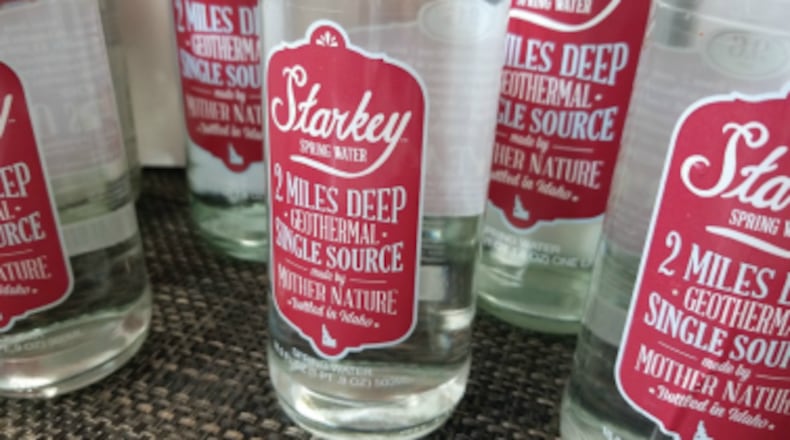A popular brand of bottled water sold nationwide at Whole Foods Markets and on Amazon.com contains potentially dangerous levels of arsenic, according to tests conducted by Consumer Reports.
The nonprofit U.S. consumer organization tested dozens of bottled water brands and found that Starkey Spring Water, introduced by Whole Foods in 2015, contained concerning levels of the toxic metalloid that is commonly used to make car batteries and pesticides.
The water is still being sold and is not subject to any consumer recall.
"Consumer Reports and the Guardian are unnecessarily scaring consumers about the safety of bottled water," said Jill Culora, the International Bottled Water Association's vice president of communications. "Consumers can remain confident that bottled water products, like all food and beverages, are strictly and comprehensively regulated by FDA and, thus, are safe for consumption."
Whole Foods, which is owned by Amazon, sells the Starkey brand online for $1.99 in a plastic bottle.
The levels of arsenic found by Consumer Reports ranged from 9.49 to 9.56 parts per billion (ppb), which is at least three times the level of every other brand tested. Similar tests in 2019 showed arsenic in bottles of Starkey as high as 10.1 ppb, according to a pending consumer lawsuit against the company.
Federal regulations limit the amount of arsenic in a bottle of water to 10 ppb.
The FDA intentionally sets limits that are lower than the level at which harm would likely occur, the IBWA wrote in a media statement, a practice the bottled water industry fully supports.
The company website says its water is derived from a geothermal spring in the fossil-rich mountains of Idaho.
"Starkey Spring Water emerges from more than two miles deep through fractures in the Imnaha Basalt, a volcanic formation where the water's purity has been protected for more than 11,000 years," the website says. Several slogans tout the product as safe: "Deep Down Good," "Journey Into The Earth," and "Refreshingly Simple."
Bottled water products that come from groundwater sources, such as Starkey Spring Water, may contain naturally occurring arsenic, according to the IBWA media statement.
Purified bottled waters often have lower arsenic levels due to the treatment processes used to make this type of product, according to the IBWA. However, regardless of the type, bottled water that meets the 10-ppb FDA arsenic standard is safe, the IBWA said in its statement.
“I think the average consumer would be stunned to learn that they’re paying a lot of extra money for bottled water, thinking that it’s significantly safer than tap, and unknowingly getting potentially dangerous levels of arsenic,” Erik Olson, a senior health official at the Natural Resources Defense Council, told Consumer Reports.
Drinking one bottle of Starkey likely won’t harm you, James Dickerson, Ph.D., CR’s chief scientific officer, told Consumer Reports. “But regular consumption of even small amounts of the heavy metal over extended periods increases the risk of cardiovascular disease, certain cancers, and lower IQ scores in children, and poses other health issues as well,” he said.
In late 2016, Whole Foods recalled more than 2,000 cases of Starkey Spring Water after tests by Florida regulators found arsenic levels of 11.7 and 12 ppb.
Consumer Reports’ study cited loose water regulations in the United States that allow companies to fly under the radar of federal limits while still posing a potential health risk, especially to children whose vulnerability can emerge below the federal limit of 10 ppb.
The Environmental Protection Agency oversees the nation’s municipal water supply and allows states to set respective standards for tap water, as long as arsenic doesn’t exceed the federal level for safe drinking.
On the other hand, bottled water is regulated by the Food and Drug Administration, which has prohibited states from creating more limits on contaminants, according to Consumer Reports.
Consumer Reports pointed out that Starkey Spring Water would be illegal in two states — New Jersey and New Hampshire — where the allowable limits for arsenic in tap water is 5 ppb.
A Whole Foods spokesperson told Consumer Reports that the company’s “highest priority is to provide customers with safe, high-quality, and refreshing spring water.”
About the Author
The Latest
Featured

